The New Evangelization and Social Communication in the Ghanaian Context
My Message Presented To The 2nd National Pastoral Congress Of The Catholic Church on the 9th of August 2014 at Sunyani
 I cannot stress my gratitude enough for this grand opportunity to join your highly respected assembly and with you, together seek ways to reach the world and direct all of us towards salvation. And while still on the point of thanking you, may I take the opportunity to plead with you to remember me in your prayers, for I am a poor sinner saved by grace as I also pray for all of you.
I cannot stress my gratitude enough for this grand opportunity to join your highly respected assembly and with you, together seek ways to reach the world and direct all of us towards salvation. And while still on the point of thanking you, may I take the opportunity to plead with you to remember me in your prayers, for I am a poor sinner saved by grace as I also pray for all of you.
Your Grace Palmer Buckle, Mr. Chairman I am tempted to assume that this assembly agrees that the duty to Evangelize is non-negotiable for every follower of Christ, and my assumption stems from the precise contextualization of my assignment – New Evangelization; Social Communication; Ghanaian Context.
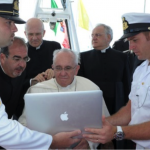 This picture released by the Vatican press office on July 8, 2013 shows Pope Francis looking at a computer while receiving explanations on a boat off Lampedusa Island, a key destination of tens of thousands of would-be immigrants from Africa, during his visit on July 8, 2013. – Even the Papa is wired and plugged in. Yes some of us aldults were born before computer, BBC, but it is a choice to be ICT illiterate. We can teach ourselves or learn from our kids to whom it comes naturally
This picture released by the Vatican press office on July 8, 2013 shows Pope Francis looking at a computer while receiving explanations on a boat off Lampedusa Island, a key destination of tens of thousands of would-be immigrants from Africa, during his visit on July 8, 2013. – Even the Papa is wired and plugged in. Yes some of us aldults were born before computer, BBC, but it is a choice to be ICT illiterate. We can teach ourselves or learn from our kids to whom it comes naturally
I must lay the cards bare right at the outset that the Laity has not done too well when it comes to supporting the call to evangelize. We have largely confined that duty to the clergy, but the Command to save souls, as established in Acts 1:8 is to all and sundry. The world has come to accept that as the Great Commission, which is the last of Christ’s commands before His Ascension – “you will receive power when the Holy Spirit has come upon you, and you will be my witnesses in Jerusalem and in all Judea and Samaria, and to the end of the earth.” 
- Where is your Jerusalem, it is your family, your work place and those very close to you. How well are you evangelizing them?
- Your Judea is your parish, there is work to be down there, your local community.
- Your Samaria is your diocese we all need to contribute to the spread of the Gospel in our Church and beyond
- Then you need to work to spread the Gospel through out the world. The tool to make that happen is now readily available – social communications and new media.
 Your Grace, Mr. Chairman whereas the Acts 1:8 recording of the Great Commission tells of the geographical boundaries of the assignment – to the end of the earth – Saint Matthew’s account (Matthew 28:18-20) which also emphasizes geography, is equally very instructive in situating the assignment in time –how long are we supposed to undertake the assignment. Jesus says “All authority in heaven and on earth has been given to Me. Go therefore and make disciples of all nations, baptizing them in the name of the Father and of the Son and of the Holy Spirit, teaching them to observe all that I have commanded you. And behold, I am with you always, to the end of the age.”
Your Grace, Mr. Chairman whereas the Acts 1:8 recording of the Great Commission tells of the geographical boundaries of the assignment – to the end of the earth – Saint Matthew’s account (Matthew 28:18-20) which also emphasizes geography, is equally very instructive in situating the assignment in time –how long are we supposed to undertake the assignment. Jesus says “All authority in heaven and on earth has been given to Me. Go therefore and make disciples of all nations, baptizing them in the name of the Father and of the Son and of the Holy Spirit, teaching them to observe all that I have commanded you. And behold, I am with you always, to the end of the age.”
The message is clear then – We must evangelize everywhere and there is no time limit. We cannot therefore say we are late, and even if we were, we also know that it is better late than never.
New Evangelization
With these opening comments let us take one after the other the three components of our topic and try to come to some agreement. The first part is New Evangelization.
During my preparation for this assignment, I came to understand that the New Evangelization was first used, in relation to the Church, by St. John Paul II in 1983 when he raised concern about the failing methods of evangelization because they no longer were effective. An address by Monsignor Philip Egan, former Episcopal Vicar for the New Evangelization of the Diocese of Shrewsbury, in the West Midlands region of England which is posted on the Diocese’s website (www. dioceseofshrewsbury.org http://www.dioceseofshrewsbury.org/catholic-faith/the-new-evangelisation/what-is-the-new-evangelisation) credits Pope John Paul II with the call for a new evangelization, which he described as being “new in its ardour, new in its methods and new in its expression”.
St. John Paul II identified three categories of people needing to be evangelized and specifically prescribed New Evangelization for backsliders; and we cannot agree with him more if we have observed unfolding events in recent times. There was a news item of a study suggesting that Churches in America and UK were getting empty on Sundays and that in some cases the buildings were being converted into shopping malls, discos and even mosque. Just google up “dead churches” or “converted churches” and be shocked at what you will yield. When I did, I discovered an endless list of churches that have closed down and the obvious questions to ask are “what happened to the members? Where are they?”
Here are a few Examples: “Divine Intervention: NYC Churches Converted to Secular Spaces” (http://untappedcities.com/2013/06/27/history-behind-nyc-church-apartment-conversions/)
“Old church converted into shopping centre and food court” (http://www.tripadvisor.com/ShowUserReviews-g294265-d338376-r197152430-Chijmes-Singapore.html)
“DEAD CHURCH IS TURNED INTO A NIGHTCLUB”
(https://www.youtube.com/watch?v=8uI2qh-UZfk)
The other two categories of people needing evangelisation, according to the Pope, are those who do not know the Gospel at all, who the Pope prescribes primary proclamation, and those whose faith is flourishing and are vigorous for whom he recommends on-going pastoral care.
So the question is why are the old ways of evangelization failing?
Let us examine some characteristics of the old ways of Evangelizing
- As Pastors and Shepherds the clergy have been used to feeding us your flocks by throwing food at us. From the ambo the priest have cried out their messages. This worked perfectly in the past, but what St. John Paul II is telling us today is that it is not enough.
- In the past we have been known to embark on outreach where with our collective strengths we would gather and call others to come and listen to the Good News. We hardly attract new converts with this method today for it is you and I who are already in the church and propagating the gospel, who will turn up. It is unlike what Dr. Mahamud Bawumia famously told the Supreme Court during the 2012 Presidential Election Petition Hearing – You and I were not there – this time you and I would be there but those we expect to be there will not show up. Dr. Mahamud Bawumia and his like will not be there
- In the past we would forsake the gathering of the saints, Mass, mainly because of ill health, and after church services our priest and the religious would follow up with a visit to our homes to see how we are faring. Today, many and very alluring are the excuses to stay away from Mass, and how many of you have not been shocked or disappointed by your own Parishioners who when they see you (Priest), go to every length to avoid you. And with a church membership of even 500, half of who will be seeking one counsel/consultation or another on a daily basis, how many in the church that may fall sick can we reach out to in a whole year? Don’t we suffer to get parishioners to administer the sacrament of anointing of the sick to, though a lot are sick?
- As I pointed out the imperative to evangelize is to all Disciples of Christ, and leaving the work to the clergy alone will not solve the challenge of reaching out to all and everywhere.
- Making disciples is also not a once in a while encounter, as in Sunday Mass. New Evangelization requires us to live and preach Christ every day. Every member of the church has an obligation to preach and live Christ, and by so doing win souls for Christ. The Priest needs to engage the flock on a constant basis.
- As Your Grace Palmer Buckle mentioned after my speech in a private discussion, the other challenge that confronts his diocese and I am sure this will go for Churches in cities and big towns. Parishioners now live very far from their parishes that have been members of since infancy and they still travel miles to attend mass these traditional parishes by passing several new parishes that are close by. So how will you the priest even if you wanted to form them at weekday services be able to get them? It is virtually impossible for they to come to anything further than the Sunday Mass.
- Communication has been a one-way traffic – defined only by what the priest has for the congregation.
What new evangelization entails
New Evangelisation will require that we open up a two-way communication channel – where, as leaders and shepherds we not only prescribe medicine and instructions for salvation, but also make space for “the sick” to tell us of their conditions and progress too. We cannot only talk at them or to them, we must listen as well. Dialogue is the key.
New Evangelisation demands of us to empower our congregations and encourage them to work their own salvation too with fear and trembling. We have a duty to provide leadership and guidance, but the congregation must practice the faith. Empowering them means sharing the Gospel with them and providing them with scriptural answers and the churches teachings for doctrinal questions. Winning souls is great and it will come by sharing the word with others. We must know that we can only convert those who hear the word and repent. Roman 10:17 “So the faith cometh by hearing, and hearing the Word of God”. Read Gal 3:2 & 5 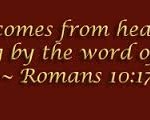
Our Priest cannot hope to achieve much if we only prepare for periodic engagements either out of tiredness or old age – Pope Benedict left us a great example. It is a daily affair, and more effective at the personal level.
Yes we will continue to speak from the pulpit and organise mass outreach events, what I am saying, and as St. John Paul II clearly predicted, these are not enough approaches and the time to reform is now.
What is Social Communication?
That leads me to the second part of our topic: Social Communication
I have come to like a great deal, our journalists’ and project managers’ definition of what communication is all about – a two-way exchange between two people where sender and receiver share meaning. You must understand and act what I say to you or I would have failed to achieve communication. Conversely, what you say to me must make sense.
Social communication therefore will mean exchanging values by way of paying attention to the social milieu we find ourselves. What we say will incorporate our cultural values and respect for others’ views and faiths, while we persist in deeds and speech to woo them to our side. We cannot be offensive, disrespectful, domineering and above all hurtful. All these traits tend to drive people away from us.
What are the tools?
But let me come straightaway to the even more crucial aspect of what tools are available to us in social communication than to bore you with a lecture in communication.
The Internet has been a major blessing since its advent, and its offshoot products like New Media and Social Media have actualized the now tired slogan of the world being a Global Village. What it offers us cheaply is its ability to connect thousands and millions in a short space. Entailed in that connectivity is interactivity – relating to each other and therefore with everyone, which also means that we will not only be sending out messages but receiving messages from others.
The popular Social Media platforms are Facebook, YouTube, Twitter, LinkedIn, Google+, Instagram, Telegram, Whatsapp etc. and Email Marketing. An added tool is a well structured website, which is not necessarily a social media tool but incorporates some functionality of social media.
We all know these tools too well, what I’m not sure of is our level of engagement with these tools which function on the assumption that we are all interconnected with each other the world over, and a message to a network member is a message to all per our interconnectivity.
 Facebook– This is a great marketing tool for disseminating information. I will be surprised if there is any among us without a Facebook account. It is free to open one except for the data cost. What is of essence here is that we need to engage regularly with our friends and followers. Facebook and indeed all other social media networks are virtual communities and mimic real human traits. In the same way you cannot just jump into the middle of other people’s conversation, it is considered rude to throw messages at people you have not really courted with. We can prepare short messages and share with our followers. We must also make time to follow what our Facebook friends are discussing and like the good ones while offering our own perspectives on issues they may have tackled wrongly.
Facebook– This is a great marketing tool for disseminating information. I will be surprised if there is any among us without a Facebook account. It is free to open one except for the data cost. What is of essence here is that we need to engage regularly with our friends and followers. Facebook and indeed all other social media networks are virtual communities and mimic real human traits. In the same way you cannot just jump into the middle of other people’s conversation, it is considered rude to throw messages at people you have not really courted with. We can prepare short messages and share with our followers. We must also make time to follow what our Facebook friends are discussing and like the good ones while offering our own perspectives on issues they may have tackled wrongly.
 – Offers video sharing and this we can put to great use. We can prepare short sermons and record ourselves and share same on our pages. The homily can be made available to our parishioners who have travelled, who miss mass or it can help the laity to evangelize themselves or the other categories. islam taking over the world This is a video that at the congress galvanized more people to action more than all the talking I did. I have heard a few people question the statistics as being a exaggerated but it does not take away the substance of the message contained in the video. As Christians we need to move into action and preserve our way of life Christianity and ensure that we live up to the Great Commissions
– Offers video sharing and this we can put to great use. We can prepare short sermons and record ourselves and share same on our pages. The homily can be made available to our parishioners who have travelled, who miss mass or it can help the laity to evangelize themselves or the other categories. islam taking over the world This is a video that at the congress galvanized more people to action more than all the talking I did. I have heard a few people question the statistics as being a exaggerated but it does not take away the substance of the message contained in the video. As Christians we need to move into action and preserve our way of life Christianity and ensure that we live up to the Great Commissions
Twitter – Twitter works like a typical SMS messaging – short, crisp and straight to the point postings of interesting events and activities. An account is required and is also free. It can be use to share the message of the priest during homily, should the church allow this?
LinkedIn – Is a database of professionals that let you build your own trusted network of professional associations.
Google+ – Google’s answer to Facebook as a social network and it works by organising friends into Circles. It has an added advantage with its automated #tag metadata promotion.
SMS – Short Message Service (SMS) is a text messaging service component of phone, Web, or mobile communication systems. It uses standardized communications protocols to allow fixed line or mobile phone devices to exchange short text messages. SMS was the most widely used data application, with an estimated 3.5 billion active users, or about 80% of all mobile phone subscribers at the end of 2010. Most parishes use bulk SMS
Then there is Whatsapp & Telegram that does not depend on mobile system, but on Internet. They are cheaper alternatives and give us the ability to mass communicate using broadcast and group to send the same message to several people.
There are several social media apps and tools available, can you identify any of them & how do you use them?
Email Marketing – A direct communication tool that requires that users build an emailing list and send messages directly to them. It is very effective. We can prepare short messages and transmit same with the assurance that recipients would see and read them at all cost.
In addition, we may establish Websites to engage with members of the Church and others beyond our immediate reach. The Church has many great examples here. (Radio Vatican – http://en.radiovaticana.va; The National Catholic Register – www.ncregister.com; and Vatican News – news.va, ) This will entail some cost though, as staff and equipment and regular internet access will be required. My parish website is an example of how we should not do it which is an indictment on me, it is a lot of work to update regularly and that is critical to get visitors coming and engaged http://www.minibasilica.com/
There are other apps available online that take the traditional text and digitize them, This include the Missal, Lectionary, Devotional like Laudate, iMissal, Confession, Catholic Hymnal. This brings the mobile phone actively into the chapel. Do we still insist on turn off your phone? How do we prevent abuse?
Then there is the use of the projector and screen for providing hymns and text from the missal and prayers during Mass. I can tell you from experience that it has improved the participation of parishioners in St. Theresa’s during Mass.
Watch out for the risks
Let me also caution that there are risks in using New Media tools. Ethics of what to publish and what not are of prime importance and we need to learn and understand them. There are user instructions or rules of engagement on all sites, which we must be familiar with. As preachers of the Gospel we cannot let our antlers down while on New Media, even for a moment, for a slip may be too difficult to recover from. But that cannot be the reason why we avoid it. Even if you do not use it you could become a victim of it, better master it and use it for new evangelization.
The Ghanaian Context
Finally, Your Grace, Mr. Chairman, the Ghanaian Context
Is there really a Ghanaian context to communication? My answer is a big yes, more so as we agree that communication should embrace what is socially and culturally acceptable. However certain other realities, which are marked features of New Media, tend to blur some of the barriers and limitations. What we say, or publish, is available to a global audience and we need to be sensitive to all users of our content.
Local idioms and colloquialism may be very appropriate in conveying meaning in certain situations, however for many other users of our content who are removed from our settings, our most powerful messages may mean nothing. We need to measure how far we go. (Tweaaa! has an amusing meaning today, and for the Ghanaian follower of politics it is sufficient for a rebuff, but can we say the same for non-Ghanaians who may read us from elsewhere?
We still have the poor with us in Ghana, and in our present circumstances of challenging times, we can be sure that data for internet usage is not on the priority list for many. This limits the size of the people we can reach.
Low Literacy levels mean we must diversify our messages and adopt varied presentation forms, fusing video and audio podcasts with text for the unlettered to share in our lessons. Mobile applications also offer great options, however these entail cost for the user and we should be mindful not to drive the church into needless materialism.
“We must innovate or die” is a great slogan by The New York Times, which like the Graphic Communications Group Limited, is seeking fresh ways of sustaining our old newspaper business. You may have heard of our QR (Quick Response) Codes in our newspapers. This technology, not quite new though, has capacity to give new life to old content. Through the QR Code your typical newspaper assumes the role of a radio or television set, bringing news alive. It is just one of many things we are doing to stay relevant.
Pope Benedict in 2010 urged that “Priests should use the Internet to evangelize more” and that was contained in hisWorld Communications Day message. Sunday, June 1st, 2014 marked the 48th World Day of Social Communications and these are the opening remarks of the Holy Father Pope Francis’ message:
“Dear Brothers and Sisters,
Today we are living in a world which is growing ever “smaller” and where, as a result, it would seem to be easier for all of us to be neighbours. Developments in travel and communications technology are bringing us closer together and making us more connected, even as globalization makes us increasingly interdependent. Nonetheless, divisions, which are sometimes quite deep, continue to exist within our human family. On the global level we see a scandalous gap between the opulence of the wealthy and the utter destitution of the poor. Often we need only walk the streets of a city to see the contrast between people living on the street and the brilliant lights of the store windows. We have become so accustomed to these things that they no longer unsettle us. Our world suffers from many forms of exclusion, marginalization and poverty, to say nothing of conflicts born of a combination of economic, political, ideological, and, sadly, even religious motives.
The Internet, in particular, offers immense possibilities for encounter and solidarity. This is something truly good, a gift from God.”
Conclusion
We have a charge to keep. “Go into all the world and preach the Gospel to the whole creation” is a reminder of that charge as recorded in Mk 16:15. There is a consequence for failure, and 1 Corinthians 9:16 is clear on that. “For if I preach the Gospel, that gives me no ground for boasting. For necessity is laid upon me. Woe to me if I do not preach the Gospel.”
The story is told of a man who was passing by a neighbourhood and saw smoke billowing from a house. What could he do, he wondered to himself. He located a fairly safe door and proceeded to knock on as hard he could. Up in one of the rooms the family were enjoying good meals and music oblivious of the raging fire below. The man persisted and knocked even harder until a man poked his head out to find out who was that intruder. It was then that he discovered the danger approaching him and his family. Quickly they escaped just before the house went up in flames.
The morale is that there is a more serious fire coming; from God to consume some of our friends and neighbours who have gone astray, should we alert them of the coming danger or wait for the fireman’s arrival? The choice is ours, to acknowledge Christ before men so he will reward us, or to deny Him so He will also deny us before His Father. (Matthew 10:32-33; Luke 12:9; 2; Timothy 2:12).
Hebrews 12: 2 urges us to look to Christ if we have doubts, for like Him, we must finish what we have started.
We cannot give up, we cannot fail our God
The task of the new evangelizations, is not an easy task, it is not going to any easier. But yes we can we have been given power, the Holy Spirit the Paraclate. At Baptism and during Confirmation and He is with us to empower us. Derek Anthony Redmond – You are not alone The story of Derek Redmond should inspire us to finish our race. Derek Anthony Redmond, born 3 September 1965 is a retired British athlete. During his career, he held the British record for the 400 metres sprint, and won gold medals in the 4×400 metres relay at the World Championships, European Championships and Commonwealth Games.
 However, his career was blighted by a series of injuries. At the 1992 Olympic Games in Barcelona he tore his hamstring in the 400 metres semi-final but continued the race limping and, with assistance from his father, managed to complete a full lap of the track as the crowd gave him a standing ovation.
However, his career was blighted by a series of injuries. At the 1992 Olympic Games in Barcelona he tore his hamstring in the 400 metres semi-final but continued the race limping and, with assistance from his father, managed to complete a full lap of the track as the crowd gave him a standing ovation.
So we also when the race seem to be strong we need to know that fortunately for us, the Holy Spirit does not leave us to run alone and come in when we cannot. Once we allow Him, He will be with us till the end of time.
Once again, I am most learned for the opportunity to pretend to take over you jobs, and speak on this topic. The congress was a great experience and I pray that the Holy Spirit will grant the Church the Execution ability of God to put these inspired decisions into action.
God bless us all
This post has already been read 11175 times!



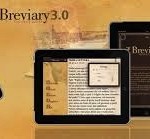
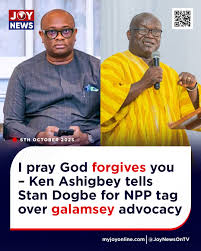
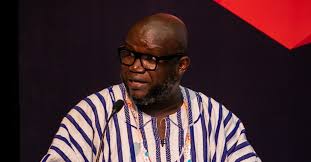


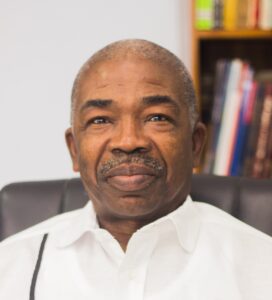


6 comments